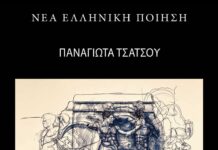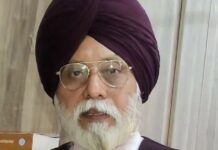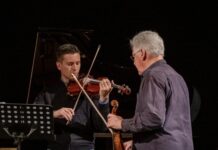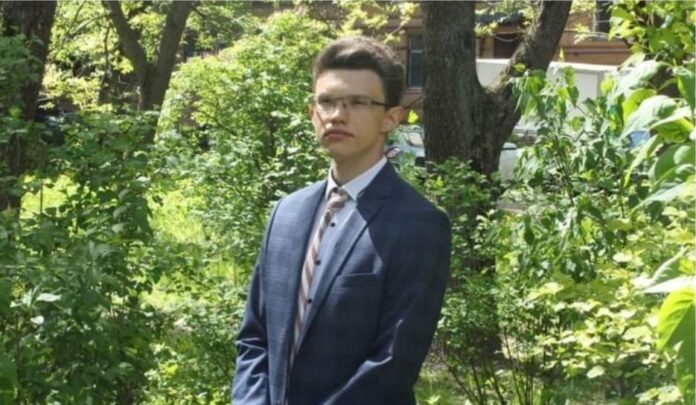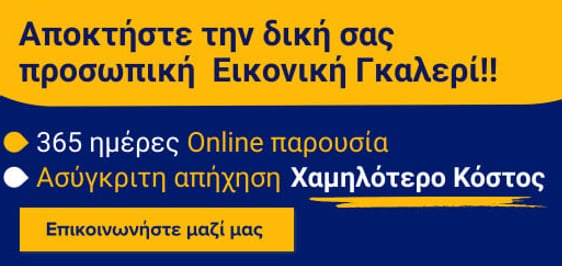Επιμέλεια συνέντευξης: Εύα Πετροπούλου Λιανού
Dear Alexander, you are a very creative person – a poet and an artist! Tell us, who do you see yourself more? A poet or an artist? I would not like to separate these two concepts. Being both a poet and an artist means thinking, connecting thoughts together, giving them a complete look and striving to present your work to the public. And being a poet or an artist, an architect, a designer or a musician is more about the forms and tools of presenting your thoughts.
For me, literary and artistic methods of work are familiar and convenient to the same extent. Some images are easier to present in the format of a poem, some in the format of a picture, in addition, there are visual people, there are audial. In my opinion, the information capacity (the main part) of poetic and artistic works is comparable.
I continue to explore this issue and right now, within the framework of our new working project “choism”, I strive to study and present the possibilities of both literature and fine art to the same extent.
You have recently created a new project called “Hyperpoem”. What prompted you to create this project? This was and still is one of our most ambitious and time-consuming projects. It all started with a small publication on social networks, in which we asked the authors to write one quatrain each in order to collect them later into one work. The effect was amazing! Dozens of authors from different countries responded to this invitation. Then I realized that the project is relevant, interesting and useful for modern poets, of whom there are millions in the world! But what purpose could be offered to them to continue the project and turn it into something more? A world record! It was a very solid and attractive overall goal, which gave the project clarity and symbolism, and the theme of “International Friendship” only further revealed the potential of both the entire Hyperpoem and each poet in particular.
What does poetry mean to you? For me, poetry is a modern tool for the representation of thought. Of course, poetry itself and its role have changed a lot since the 18th and 19th centuries, and in the 21st century we must look for new ways to serve it for the benefit of humanity. In my opinion, Hyperpoem can serve as a good example, it is not a banal festival, creative evening or competition, but something new in nature – a socio-poetic phenomenon! Perhaps this is just what the literature of the 21st century can and should give us.
Tell us more about Hyperpoem. How many countries are participating? Now poets from such countries as Albania, Algeria, Argentina, Armenia, Australia, Austria, Azerbaijan, Bangladesh, Belarus, Benin, Bhutan, Brazil, Bolivia, Bosnia and Herzegovina, Bulgaria, Cape Verde, Canada, Chile, China, Croatia, Czech Republic, Colombia, Cuba, Egypt, England, Ecuador, France, Georgia, Germany, Ghana, Greece, Guatemala, Haiti, India, Indonesia, Ivory Coast, Israel, Italy, Jamaica, Japan, Kazakhstan, Kenya, Kyrgyzstan, Latvia, Lebanon, Libya, Liberia, Macedonia, Malta, Malawi, Mauritius, Mayotte, Malaysia, Mexico, Montenegro, Morocco, Moldova, Myanmar, New Zealand, Nepal, Nigeria, Norway, Paraguay, Pakistan, Philippines, Portugal, Poland, Romania, Russia, Serbia, Singapore, Slovenia, South Africa, Spain, Saudi Arabia, South Korea, Slovakia, Sweden, Taiwan, Tajikistan, Turkey, Tanzania, Trinidad and Tobago, Tunisia, USA, Ukraine, Uzbekistan, Uganda, Venezuela, Vietnam, Zimbabwe.
And these are only those participants who clearly indicated their countries, but some of them moved to live in others!
This is a world record project. What does it mean to you? For me, the world record is, on the one hand, the stage of execution and implementation of the first stage of work on the project; on the other hand, it is the public recognition of our Hyperpoem. Already, according to a number of indicators, Hyperpoem is a unique phenomenon not only for the world of literature, but also for the history of mankind as a whole!
Do you think you are making your dreams come true? Perhaps, yes… Hyperpoem was also a dream, but I shared it with hundreds and even thousands of poets around the world and our common dream became a reality!
How many months have you been working on this project? We have been working on the project for almost two years. It was quite a busy stage of life, full of many related projects, interesting acquaintances, experiments, etc.
I want to note that our team does not plan to stop there, we will continue to work on the development of Hyperpoem in an updated format, because potentially it will be able to accept thousands more authors and actively live and develop for many years!
How many participants are involved in Hyperpoem? In total, about 1,700 participants were noted in the Hyperpoem. I would like to note that it would not have been possible to achieve such a result without the active participation of our co-organizers: Dr. Joseph Spence, Kieu Bich Hau, Lou Fu (Hsu, Shih-Ting), Desa Dautovic, Miloš B. Ivetić, Marija Jotić, Eva Petropoulou-Lianou, Sadovskaya Lyudmila, Isilda Nunes, Stefania Danilova, Daria Galvas and special thanks to the ukiyoto publishing house, who invited hundreds of poets to participate in the project!







